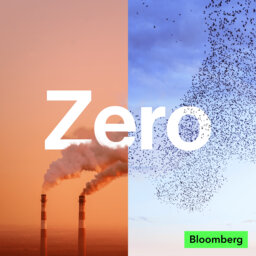It is now cheaper to save the world than destroy it. But is capitalism up to the challenge of preventing the climate crisis?
In his new book Climate Capitalism, Zero host Akshat Rathi introduces a dozen people who are already steering capitalism to solve the climate crisis: from the engineer who shaped China's electric car policies and the politician who helped make net-zero a UK law to the CEO who fought off a takeover attempt so he could stick with a sustainability strategy. Akshat argues that not only is capitalism capable of taking on the climate crisis, but harnessing it is the only way to solve the climate crisis in the time we have available.
And yet while some improvements have been made over the past few years, the world is off track to meet its 2050 climate targets. So today on Zero, Bloomberg’s Greener Living editor Kira Bindrim sits down with Akshat to discuss his new book, and asks him: If climate capitalism is so doable, why does it seem so difficult?
Read more:
- Order Akshat’s new book, Climate Capitalism
- Listen to the interview with Fatih Birol that Akshat mentions
- Hear Akshat and Kira talk about the reality of carbon footprints
- Read a transcript of this episode
Zero is a production of Bloomberg Green. Our producer is Oscar Boyd and our senior producer is Christine Driscoll. Special thanks to Anna Mazarakis, Gilda di Carli and Kira Bindrim. Thoughts or suggestions? Email us at zeropod@bloomberg.net. For more coverage of climate change and solutions, visit bloomberg.com/green.
In 1 playlist(s)
Zero
Zero is about the tactics and technologies taking us to a world of zero emissions. Each week Bloombe…Social links
Follow podcast
Recent clips

Ethiopia’s fossil fuel car ban is a vision of the future
32:37

Do artists have a duty to be political? Imagine series
32:37

Electricity is now holding back growth across the global economy
39:13
 Zero
Zero